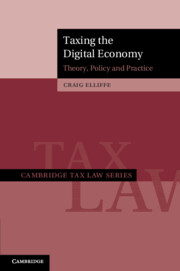5 - The OECD Secretariat’s and Inclusive Framework’s Proposals for Multilateral Reforms
from Part II
Published online by Cambridge University Press: 23 April 2021
Summary
This chapter examines the reasons for, and policy behind, the programme of work that has developed a new international tax framework. In developing two "pillars", the OECD Secretariat and, more latterly, the Inclusive Framework, with the proposals in Pillar One, have broken new ground in proposing new taxing rights without the requirement of physical presence in the source or market jurisdiction. These profit allocation rules radically depart from the existing international tax framework. In addition there are other proposals that use formulaic calculations, residual profit split methodology and elements of formulary apportionment, allocating profits to the marketplace jurisdiction, ignoring the single entity concept, and departing from the arm's-length principle. In respect of Pillar Two, the proposalto prevent profit shifting is equally controversial. The proposals under Pillar Two contemplate a minimum level of tax paid on all internationally operating businesses. These proposals confront the international tax framework norm in the areas of transfer pricing, the use of intellectual property, residence taxation and, in particular, tax competition.
Keywords
- Type
- Chapter
- Information
- Taxing the Digital EconomyTheory, Policy and Practice, pp. 167 - 212Publisher: Cambridge University PressPrint publication year: 2021



